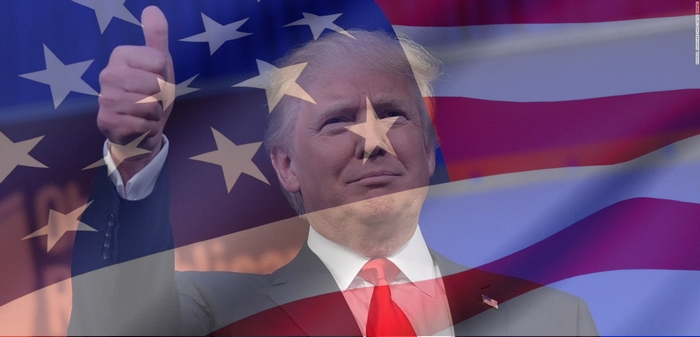Why does it matter to all of us who is in the White House? Because the USA accounts for 16% of the global GDP (like China) and 44% of the nuclear warheads registered worldwide.
To the great surprise of the pollsters (a profession in dire need of reform given its repeated failures… Remember Brexit), it is Donald Trump who will govern the United States for the next four years.
A result that commentators across the Atlantic define as a “stunning upset,” a surprising reversal.
The Republicans also retain control of Congress (239-193) and the Senate (51-47), although with smaller majorities than before.
It’s a total shock: for the first time in American history, a candidate reaches the White House without any political experience, and with no agenda other than a series of outrageous statements and vague promises. “The Apprentice” now has full power, as the Republicans have also gained the majority in the House and the Senate. How will he govern the world’s leading power? It’s a mystery, as the new face of America is a “political UFO,” “devoid of any ideological framework.”
However, beware, Trump is also a pragmatist, and then there’s reality. The American political system is based on “check and balance,” power and counter-power, and it does not mean that all presidential initiatives will easily pass through Congress and the Senate, where interests reign supreme and where the Republican Party holds a majority but is not necessarily “trumpist.”
The first polling stations closed at 1 AM (CET), and at 3:30 AM, after the first results from the coastal states favored Hillary Clinton, the candidate lines crossed at the parity point on the New York Times barometer, subsequently offering victory to the Republicans.
The Republican candidate won the “swing states” of Ohio, North Carolina, and especially Florida.
An initial analysis shows that votes cast for the independent and libertarian Gary Johnson (the candidate who was hardly talked about but did exist) negatively impacted Hillary Clinton’s score: when you lose by 1 to 2% in certain states, the 2/3% of missing voters become decisive.
Looking at Florida (29 electoral votes), Gary Johnson’s score most likely prevented a Democratic victory, with significant consequences on the final result. And other cases could be cited.
In this case, history repeats itself: in 2000, civil rights attorney Ralph Nader (Green Party candidate) gave the controversial victory to George Bush against Al Gore by taking away decisive votes.
Ultimately, the White House will not display the color pink, which would have been a first in the history of this country.
Its inhabitant will be Donald Trump, a billionaire who presents himself as a populist!
In any case, in democracy, one thing is certain: the choice of the voters must be respected.


